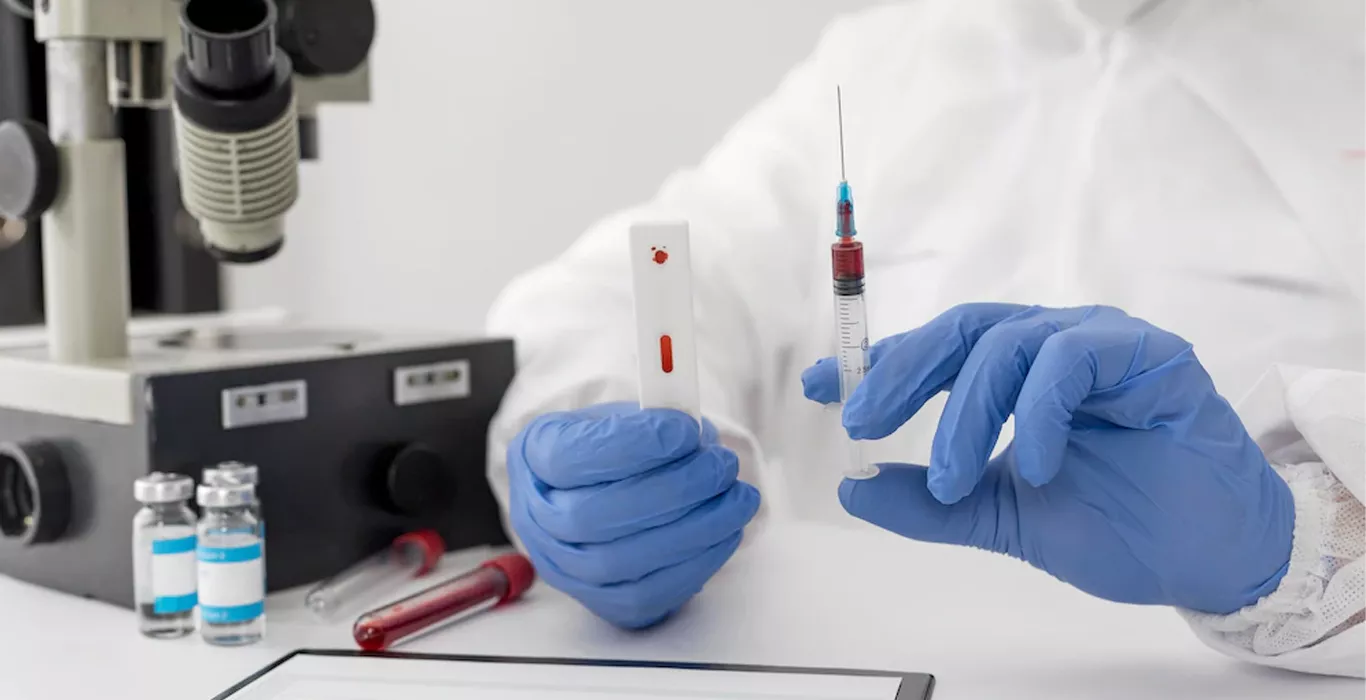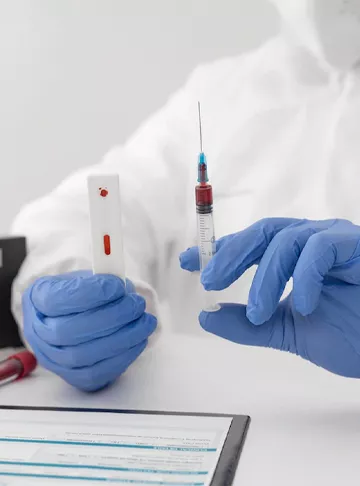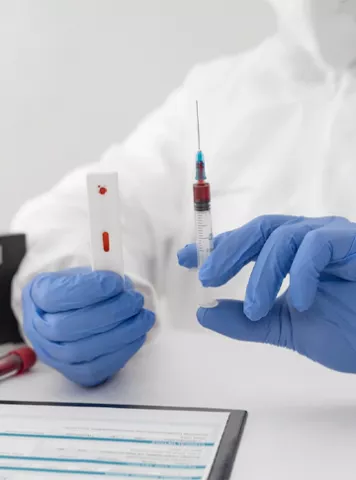Synopsis
Anti-Müllerian hormone (AMH) is a crucial marker in the field of reproductive health, particularly in assessing a woman's ovarian reserve and fertility potential. Low AMH levels can be concerning, impacting a person's ability to conceive. This article explores the various aspects of low AMH levels, including its causes, symptoms, diagnosis, and available treatment options.
What is a Low AMH Level?
Anti-Müllerian hormone (AMH) is produced by the ovaries and plays a vital role in assessing a woman's ovarian reserve. AMH levels are an indicator of the number of eggs a woman has in her ovaries and can help predict her fertility potential. Low AMH levels imply a reduced ovarian reserve, meaning fewer eggs available for fertilization.
Low AMH levels typically affect women, especially those in their late 30s and 40s, as ovarian reserve naturally declines with age. However, some younger women may also experience low AMH levels, indicating potential fertility challenges.
What are the Types of Low AMH Levels?
Low AMH levels are categorized into three types:
1. Low-Normal AMH: AMH levels are lower than the average for a woman's age, indicating a diminished ovarian reserve.
2. Very Low AMH: AMH levels are significantly below the expected range for a woman's age, suggesting a severe reduction in ovarian reserve.
3. Undetectable AMH: AMH levels are so low that they cannot be measured through standard tests, indicating a critical depletion of ovarian reserve.
What are the Causes of Low AMH Levels?
Several factors can contribute to low AMH levels, including:
-
Advanced Age: The natural ageing process leads to a reduction in the number and quality of eggs.
-
Polycystic Ovary Syndrome (PCOS): An endocrine disorder affecting hormone levels and disrupting ovulation, potentially lowering AMH levels.
-
Premature Ovarian Failure (POF): A condition where ovaries stop functioning before the age of 40, causing a significant decline in AMH levels.
-
Genetic Factors: Some genetic conditions can affect AMH production and ovarian reserve.
What are the Symptoms of Low AMH Levels?
Low AMH levels may not manifest obvious symptoms. However, associated symptoms can include irregular menstrual cycles, difficulty conceiving, or early menopause symptoms like hot flashes and mood swings.
Do low AMH Levels Affect Fertility?
Low AMH levels are associated with reduced fertility. A diminished ovarian reserve means fewer eggs available for fertilization, making it more challenging to conceive. However, it's important to note that low AMH levels do not rule out the possibility of pregnancy; they simply indicate a potential difficulty in conceiving.
How are Low AMH Levels Diagnosed?
Low AMH levels can be diagnosed through a blood test to measure AMH levels in the body. This test is usually conducted on specific days of the menstrual cycle to get an accurate assessment of ovarian reserve.
How is Low AMH Levels Treated?
Treatment options for low AMH levels focus on enhancing fertility and addressing underlying causes. Options include:
- In Vitro Fertilization (IVF): A common fertility treatment involving stimulating the ovaries to produce multiple eggs for retrieval and fertilization.
-
Ovulation Induction: Medications to stimulate egg production, encouraging the ovaries to release more eggs during the menstrual cycle.
-
Egg Donation: Using eggs from a donor if a woman's egg supply is severely compromised.
-
Lifestyle Changes: A healthy lifestyle, including a balanced diet, regular exercise, and reduced stress, can positively impact fertility.
Conclusion
Low AMH levels are a significant concern for individuals trying to conceive, signalling a potential decrease in fertility. Understanding the causes, symptoms, diagnosis, and available treatment options is crucial in managing this condition effectively. While low AMH levels may pose challenges, advancements in reproductive medicine offer various strategies to improve fertility and help individuals achieve their family planning goals.
Frequently Asked Questions (FAQs)
Can low AMH levels be improved or increased?
There is no direct way to significantly increase AMH levels. However, certain lifestyle changes and fertility treatments may help optimize the existing ovarian reserve and improve the chances of conception.
Are low AMH levels reversible with treatment?
While treatment options like IVF can assist in conceiving despite low AMH levels, the levels themselves may not significantly improve with treatment. The focus is typically on maximizing the use of the available eggs.
Is low AMH a definitive indicator of infertility?
Low AMH levels suggest reduced ovarian reserve and may make it harder to conceive, but they do not guarantee infertility. Many individuals with low AMH levels can still conceive, especially with appropriate fertility treatments.
Can lifestyle changes positively impact AMH levels?
Maintaining a healthy lifestyle through a well-balanced diet, regular exercise, avoiding smoking, and managing stress can promote overall reproductive health, potentially optimizing the remaining ovarian reserve, although it may not significantly alter AMH levels.
Comments
Articles
2022


Guide to infertility treatments AMH -Blood Testing
All You Need to Know About the AMH Test
What is the AMH test? Anti-Müllerian Hormone test or AMH test measures the...
2022


Guide to infertility treatments AMH -Blood Testing
Low AMH : Causes, Symptoms and Treatment
Low AMH: An Overview Anti-Mullerian Hormone (AMH) level is a creditable bar...
2022
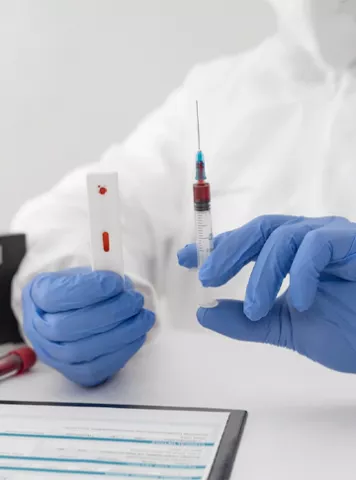

Guide to infertility treatments AMH -Blood Testing
What Happens If AMH Level is High
Women undergoing fertility treatment are often familiar with the term AMH as i...
2022
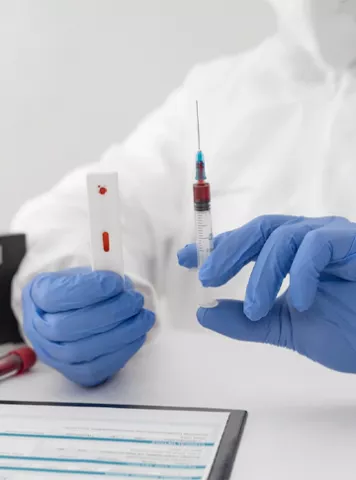

Guide to infertility treatments AMH -Blood Testing
How Much Does AMH Vary In Normal Female?
What is AMH? Anti-Mullerian Hormone (AMH) is produced by follicles in ovari...
Tools to help you plan better
Get quick understanding of your fertility cycle and accordingly make a schedule to track it

